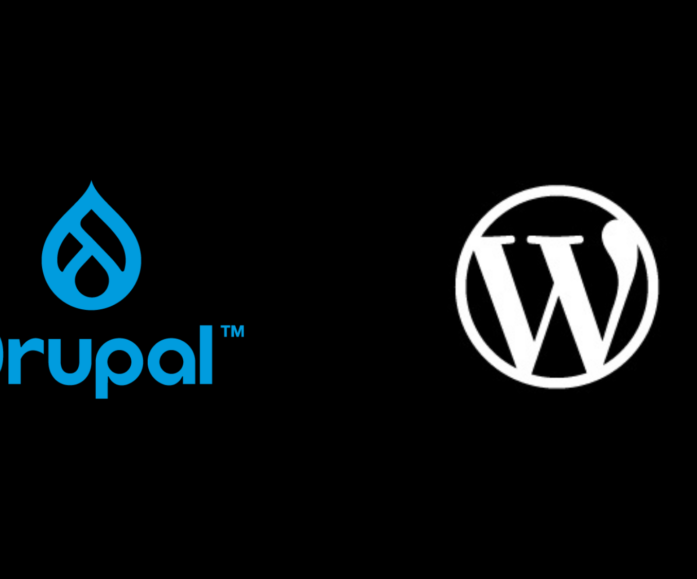
Digital Publishers: If You’re Not Using WordPress, You’re Missing Out
Digital Publishers of all shapes and sizes, from independent writers to the largest media and news organisations, all require a content management system (CMS) to power their website.
WordPress powers more than 40 percent of the internet. This kind of market dominance brings with it a level of scrutiny, and WordPress continues to silence its critics. The increased adoption of WordPress by large corporations and publishers validates that WordPress can meet and exceed the requirements of online publishers.
For any business, the choice of CMS is an important one, and the wrong choice can be a long-term costly problem.
With more and more platforms and products entering in the market, there are a number of key reasons WordPress is the platform of choice for growing digital publishers.
In recent years, The Code Company has completed a number of large re-platforming to WordPress projects. All of these have involved careful consideration of whether WordPress is the most suitable option. In all of these evaluations, there are some constant and recurring themes as to why WordPress is a great platform for digital publishing businesses.
FAST FACTS ABOUT WORDPRESS FOR PUBLISHERS
Did you know?
- Around 20 million websites globally are powered by WordPress CMS
- Major versions of WordPress are released at least twice a year (often more)
- Tons of digital publishers use WordPress. These include The New York Post, Nine Entertainment, eBay Ads, Her Campus, Drive.com.au and Vogue
Top 5 Reasons WordPress is the Best Content Platform for Digital Publishers
1. WordPress offers an intuitive, powerful and robust editorial experience
One of key reasons for WordPress’ significant growth and dominance in the market is—and has always been—its highly intuitive administration interface. When you onboard a new team member and show them the WordPress backend, this is immediately evident. When without any extensive training, they’re able to just start using the platform.
The cost of a poor editorial user experience can be significant. Resources are often wasted through reduced productivity of staff and general frustration. And there’s a direct cost when having to deploy design and development resources to provide a simple yet high-quality environment for your team to do their work.
Having the ability to efficiently and rapidly publish content is paramount for any publishing business. While getting information and news in front of readers is a simple concept, all publishing teams have unique and nuanced workflows to suit their own business. The chosen CMS needs to be flexible enough to adapt to suit the requirements of a modern publishing business. The makeup of these teams can also differ significantly. The chosen CMS must accommodate editorial and content teams, along with ad sales and marketing teams or product managers.
WordPress has a flexible approach to customising and extending its backend. Skilled developers can add custom meta data against articles, specify custom images or interfaces to custom workflows.
Because the foundation is already very user-friendly and intuitive, customisations to the editorial experience are also going to follow that same design framework and fit seamlessly.
2. WordPress provides mainstream integration options and flexibility
One of the biggest reasons open source technology—where the code is available for others to view, edit, contribute and redistribute—such as WordPress, has grown is due to the collaborative culture underpinning it.
WordPress has the largest community of plugins (modules/add-ons/components) in the content management space, exceeding 50,000. To ensure this ecosystem is secure and healthy, the WordPress foundation reviews submissions to the master plugin repository.
Using a closed-source or proprietary CMS restricts a business’s ability to make customisations unless there is an official supported component.
Other less popular CMSs do support the same modular approach. However, the fact remains that this is only advantageous if there is a thriving and healthy community and ecosystem to support it.
Due to WordPress’ size in the market, major players like Apple News, AMP and Facebook all have official or officially-endorsed plugins for WordPress that integrate with their services.
Initiatives like Newspack, funded heavily by Google, involve large enterprises funding officially supported, high-quality frameworks to build first class digital experiences with a fraction of the effort compared to building from scratch.
A common scenario:
A business is using a more primitive CMS or perhaps building its own. It will likely result in situations where they want to integrate with a popular service, such as Cloudinary, to manage their image CDN functionality.
No off-the-shelf add-on or plugin exists, so the company has to invest hundreds of development hours into just building its own integration. If it had been using WordPress, the plugin could have been installed to a staging or development environment where a non-developer would have been able to set up and get the plugin running on their own.
It’s worth noting, that while these plugins do offer a complete solution, that doesn’t mean that you can’t further extend or customise that functionality.
Take the AMP plugin for WordPress by Google. Out of the box, this plugin gives the user a complete AMP experience, while basic, it does the job. The AMP plugin also however, allows a development team to use that as a foundation—representing 80 percent of the effort—to build the final 20 percent and offer a more customised experience.
This type of scenario can happen dozens of times over a website’s life. Which means thousands and thousands of development hours could be saved or focused on more valuable endeavours.
3. WordPress comes with an established agency and developer ecosystem
For any business evaluating a software decision, it’s important to evaluate the marketplace and ecosystem that surrounds it. WordPress’ underlying philosophy as an open-source CMS means it’s accessible to all. Its rise to global dominance is reflected in the rise of accompanying professional services and commercial offerings.
One of the greatest benefits of the WordPress community’s dedication to quality standards and best practices. This makes your ability to either hire talent directly or through an agency significantly easier as there is a pool of skilled WordPress developers readily available.
One of the risks of building your own technology stack and not embracing a standard like WordPress is an over-dependence on key staff or agency partners.
What’s often jokingly referred to as Frankenstein Software is very real, and it is commonly a result of technical decision makers forging a less standardised path. This is ofter more for their own reasons rather than the long-term benefits of the business.
Using WordPress as the foundation for your publishing platform gives you peace of mind in knowing that you could easily bring in a new internal team or external development partner – at a greatly reduced risk of vendor lock-in.
4. WordPress benefits from a strong hosting ecosystem
Scaling a WordPress site or any website for large amounts of traffic is a technical challenge, especially if you’re managing it on your own and doing it internally. Fortunately, the WordPress hosting ecosystem has developed rapidly to support the large volumes of traffic that often come with running a digital publication.
Companies like WP Engine, WordPress VIP and Pagely invest heavily in building high performance and scalable platforms that make it easy to run WordPress sites at scale.
Another bonus of using WordPress as a digital publisher is that it is platform agnostic. This means you’re avoiding risk from having your site highly coupled with a hosting platform, a development agency or an internal team. Taking advantage of standards as much as possible results in a greater level of freedom for a business to run their website wherever they choose.
5. WordPress allows you to keep your technology stack simple
The Code Company primarily works with scaling or growing digital publishing businesses. Our clients are often punching above their weight editorially but don’t have excessive financial resources to invest in technology.
From a technical complexity perspective, digital publishing is relatively simple. Too often internal development teams or external agencies overcomplicate technology decisions. Sometimes for vanity sake; other times for the challenge of using the latest and greatest tools.
WordPress has been around for over a decade, and there is no shortage of newer or more modern tools that are technically more advanced. At the end of the day however, they rarely help the business with their commercial objectives.
Solving the challenges of scaling and running a publishing platform on WordPress is more or less settled. You have benefit of taking advantage of the lessons learned by the many business or websites that have had to solve the exact same problems you face.
The Code Company founder Ben May, on WordPress
In late 2019, Velocitize interviewed me on the topic of how we are seeing adoption of WordPress in businesses, especially enterprise and publishing businesses. You can watch the interview below.
One of the natural affinities we have to WordPress is it’s open and flexible, so with those kind of benefits at play, it’s naturally going to beat a proprietary platform out of the box.
What you create ends up being an amazing ecosystem of plugins and features that custom fit your company’s business, creative and revenue needs.”
Debunking common WordPress misconceptions
Despite its prolific use there are still some who—when they think of WordPress—reflect on the platform as it was a decade or so ago.
WordPress has come a long way since its inception with over 35 versions released. The size of the WordPress community means it’s almost impossible for security risks to go unnoticed.
Like any self-hosted platform, information and data security are only as good as those maintaining it. Too often, sites with out-of-date plugins or weak passwords are the ones causing most incidents or vulnerabilities.
WordPress has far greater adoption for many reasons. Nearly 5,000 companies on StackShare choose it as their CMS ,including global powerhouses like eBay, Mozilla, TechCrunch, Spotify, and 37Signals.
The highly-scalable nature of WordPress is why it’s used by some of the largest and most influential digital publishers in the world, including the New York Observer, New York Post, TED, Thought Catalog, USA Today, CNN, Fortune.com, TIME.com, CBS Local and NBC.
“The biggest thing we’ve learned is that although you’re using WordPress, (you can) be as creative as possible and think outside the box.
What you create ends up being an amazing ecosystem of plugins and features that custom fit your company’s business, creative and revenue needs.”
reviews.com
WordPress has become the obvious choice for anyone serious about digital or online publishing. It allow organisations to focus on publishing quality content in flexible and innovative ways in a dynamic and fast-paced environment.

